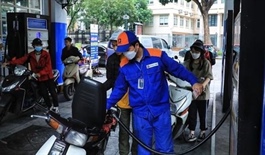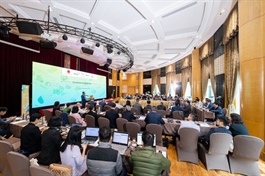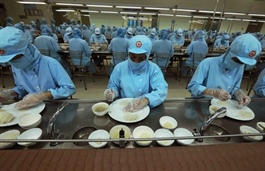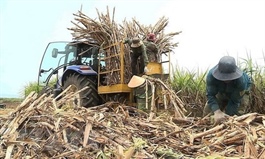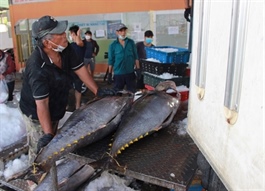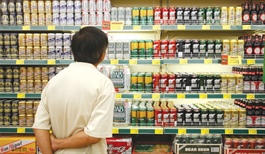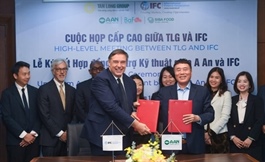Guidelines requested for coffee export chain
Guidelines requested for coffee export chain
The Vietnamese coffee industry is confronting multiple challenges as foreign trade policies are no longer constrained by borders, aligning more closely with sustainable development regulations.

Coffee companies in Vietnam are currently awaiting EU guidance on implementing the EU Deforestation Regulation (EUDR). Under the EUDR, any operator or trader who places commodities like soy, beef, palm oil, wood, cocoa, coffee, and rubber commodities on the EU market, or exports from it, must be able to prove that the products do not originate from recently deforested land or have contributed to forest degradation. The regulation poses administrative and cost issues for the nation’s coffee industry.
“The EUDR has been issued, but implementation guidelines are yet to be provided,” said Le Thi Hoai Thuong, senior communications and external relations manager at Nestlé Vietnam, VIR’s conference on sustainability on November 16.
“Vietnam’s production activities are influenced by partner countries, including the EUDR. However, the regulation is not just a challenge. It’s an opportunity to demonstrate that Vietnam has a low risk of deforestation, creating an advantage for businesses exporting to Europe,” Thuong said.
The EUDR was passed by the European Parliament in June, to be effective from December 30, 2024. From 2025, there will be a two-year grace period for small and micro-enterprises. According to the European Coffee Federation, the new EU regulations apply to all types of coffee, both produced within and outside the EU, impacting all coffee-exporting countries.
Two weeks ago, EUDR-compliant programmes were launched in Vietnam. On November 3, as a part of this effort, Forest Trends, a US-based organisation, released a report noted that in 2022, the export value of Vietnamese coffee to the EU reached nearly $1.5 billion, a 42 per cent increase from 2021. Vietnam primarily exports raw coffee, accounting for over 95 per cent of the total value of its coffee exports to the EU.
The Forest Trends research team expressed concerns about the complex coffee supply chain, making source tracing challenging. Vietnam has an extensive coffee supply chain with intricate intermediate stages. Farmers play a leading role at the chain’s beginning, with over 80 per cent of coffee cultivation directly managed by farmers, contributing 95 per cent of the total coffee supply in Vietnam, with over half of production originating from small plantation households.
Land for production is relatively fragmented, with coffee plantations often smaller than three hectares per household, each comprising various land plots. A widespread procurement team operates at multiple levels, from commune to province and city, playing a leading role in purchasing channels and connecting farmers with processing and export companies. The end products of the processing mainly serve exports, accounting for over 80 per cent of the total produced products.
Dr. To Xuan Phuc, director of the Resource Management and Trade Policy programme at Forest Trends, stated that the EU was currently the largest coffee export market for Vietnam, accounting for nearly 40 per cent of the total export turnover.
“With the implementation of the EUDR, the EU’s import management agency will assess the risk of importing these goods based on two criteria,” Phuc said.
“Firstly, evaluating the risk of the import supply chain through conventional methods. Secondly, ranking the risk of the country or region of production according to the criteria set by the EU. The risk assessment criteria for exporting countries/regions do not differentiate between industries and apply uniformly to all imported goods from countries/regions within the scope of the regulation.”
The more complex the supply chain, the greater the compliance risk with legal requirements at various stages in the chain, Phuc added.
The EUDR examines the characteristics of the supply chain in the region of production as a crucial criterion for classifying the risk level of the exporting country. The more complex and lengthy the supply chain, with many participants and activities in intermediate stages, the more challenging traceability becomes, and vice versa.
Vietnam holds significant potential in coffee production, being the world’s second-largest producer and exporter after Brazil. It is also the largest producer and exporter of robusta coffee globally.
According to Phuc, the risk of deforestation related to the coffee production process is low. However, collecting and documenting evidence to substantiate this requires sufficient resources in terms of personnel, technology, and finance.
“The Vietnamese government, along with businesses and partners, should prioritise resources for this task as soon as possible,” he said.







